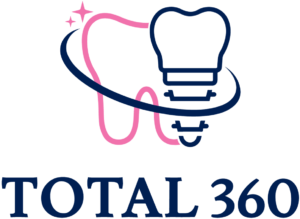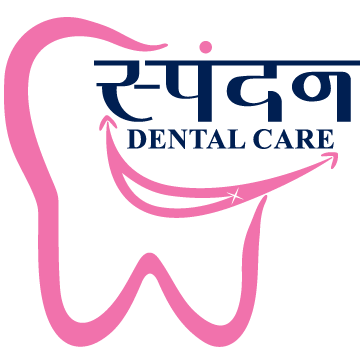Laser Dentistry: An Overview
Laser is fine instrument that produces narrow intense beam of rays. When these light ray comes in contact with tissues causes a reaction and which in turn helps to kill the invisible microbes /inflamed tissues and thus help to cure the gum problems.
Dental laser is tool which is used for surgeries, removing decayed area of the tooth, teeth whitening, sterilizing the oral tissues and cavity. Dental lasers are used for non invasive dental procedures.
The Types of Lasers Used in Dentistry
Hard Tissue Lasers
Hard tissue lasers are primarily used for procedures involving the teeth. They are used accurately and efficiently to cut into the tooth, making them ideal for shaping teeth for composite bonding or preparing teeth for dental fillings. They can also be used to detect cavities.
Soft Tissue Lasers
Soft tissue lasers are ideal for cutting and sealing the exposed blood vessels at the same time. This is why they are often used for periodontal (gum) procedures. Soft tissue lasers offer several advantages, including minimal discomfort, reduced bleeding, and quicker recovery times for patients.
Paediatric dentists offer a wide range of oral health services, which comprise the following:
- Conducting oral health examinations for infants, which also involve assessing both mother and child’s risk for tooth decay.
- Offering guidance on habits like thumb sucking and pacifier use.
- Performing early assessments and treatments to align teeth and rectify improper bites (orthodontics).
- Repairing tooth cavities or other defects.
- Handling gum diseases and conditions like ulcers, short frenulae, mucoceles, and pediatric periodontal disease.
- Treating dental injuries like fractured, displaced, or knocked-out teeth.
Benefits/advantages
- Surgical procedure completely blood less
- Precise cutting
- Pain is never a complaint for patient going for laser treatment
- Reduce uneasiness
- Patient post-operative complaints are zero
- No post-operative medications required
- No stitches
- No drill
- No bone injury
- Fast recovery
- Shorter procedure time
What Laser Dentistry Can Treat
Lasers have a broad range of applications in dentistry.
- Receding Gums
- Bleeding Gums
- Bad Breath/ Halitosis
- Swollen Gums
- Mobile Tooth
- Repeated Pus Formation in Gums or Tooth
- Gingival Overgrowth
- Implants Related Issues
- Gummy Smile
- Mouth Breathers
- Burning Sensation in Mouth
- Wisdom Tooth related Problem
- Temporomandibular Joint Dysfunction (TMJ)
- Jaw Muscle Pain
- Hyper Pigmentation
- Sensitive Teeth
Why Laser Dentistry over Traditional Dental Methods?
- Minimized Discomfort and Anxiety: Many patients associate dental procedures with the fear of the drill’s noise and vibrations. Laser dentistry is noiseless and can help reduce anxiety in patients.
- Less Need for Anaesthesia:Lasers often cause less pain during the procedure, reducing the need for anaesthesia.
- Precision: Lasers can target the diseased areas precisely without affecting the surrounding healthy tissues, making treatments more effective.
- Minimum Bleeding and No Swelling: Laser procedures typically involve minimum bleeding and no swelling compared to traditional surgery.
- Faster Healing and Tissue Regeneration: The laser sterilizes the area being worked on, reducing the risk of infection and promoting faster healing. /
- No Stitches Required: For soft tissue procedures, lasers often eliminate the need for sutures.
- Preservation of More Natural Tooth: In cavity preparation, lasers can be more conservative, preserving more of the natural tooth than drills.
- Reduced Risk of Infection: The laser beam sterilizes the area being worked on, decreasing the chance of bacterial infections.
What Happens If We Ignore Certain Dental Issues?
If you’re experiencing a dental emergency, it’s important to seek professional treatment right away. Ignoring a dental emergency can lead to serious consequences, including:
- Infection
- Damage to Your Teeth:
- Pain
- Swelling
- Gum disease
- Heart disease
- Gum infection,
- Hypertension
- Kidney Issues
- Hormonal Imbalance
- Burning Mouth
- Oral Ulcers Etc.
Post-Operatively Expectations
After a laser dentistry procedure, patients can expect a smoother and faster recovery. As lasers are more precise, they often cause less damage to surrounding tissues, resulting in less post-operative discomfort. Maintaining your oral health is just as crucial as taking care of your overall physical wellbeing. A regular dental check helps to prevent various oral health problems and enhance your quality of life.
Whom to Choose for Laser Dental Procedure
Periodontist: A Periodontist is well aware of dental soft tissues and well versed in his/her subject as he or she is master in handling soft tissues. He / She typically sees severe, complex cases that require a specialist like Dr. Komal Thakkar rather than visiting a general dentist.
Here's a General Guide to Follow:
- Make sure to brush your teeth twice every day. Brushing before bedtime will also help eliminate any remaining food residues in your mouth.
- Don’t forget to floss regularly.
- Schedule routine check-ups with your dentist.

